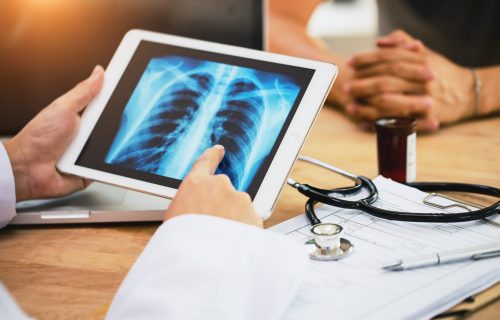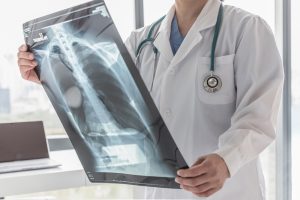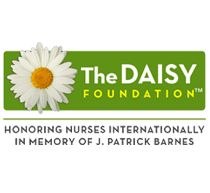Cancer cells can hide from your immune system, causing your natural defense system to remain inactive. Well-known immunotherapy drugs include KEYTRUDA® and OPDIVO®, both of which work by activating your immune system so it can recognize and identify cancer cells that are hiding. In recent years, these drugs have been approved to treat several types of lung cancer; your physician can help you determine whether immunotherapy treatments are right for you.
Targeted Therapies Reach Cancer Cells While Avoiding Healthy Cells
Targeted therapies, sometimes called precision medicine, use drugs to precisely target certain types of cancer cells while avoiding healthy, normal cells. Targeted therapy can be used by itself, or in combination with other treatments like traditional chemotherapy. These therapies work by differentiating between cancer cells and normal cells to block unhealthy cells from dividing and creating new cells. Targeted therapy treatments may also produce fewer side effects than traditional chemotherapy.
Clinical Trials Study New and Effective Ways to Treat Lung Cancer
Lung cancer research is constantly evolving. Clinical trials can provide patients with the opportunity for a better outcome and quality of life while playing a vital role in the development of treatments for lung cancer. RCCA participates in clinical trials through US Oncology Research, which has played a role in more than 100 FDA-approved cancer therapies.
These are clinical studies that are typically available in major hospital systems in large cities, but RCCA can offer them close to home, where patients can have the support of their family and friends.
Know the Risk Factors for Lung Cancer
Smoking tobacco is, by far, the leading cause of lung cancer. About 87% of all lung cancer cases in the U.S. can be attributed to smoking. However, even if you quit smoking or have never smoked at all, you can still develop lung cancer.
Other risk factors for lung cancer include:
- Secondhand smoke exposure
- Scarring on the lungs caused by tuberculosis
- Family history of lung cancer
- Some genetic mutations
- Exposure to asbestos, radon, radiation, arsenic, uranium, beryllium, vinyl chloride, nickel chromates, coal products, mustard gas, chloromethyl ethers, gasoline, or diesel exhaust
Signs and Symptoms of Lung Cancer
Even seemingly trivial symptoms, such as a cough that doesn’t go away or shoulder pain, could indicate lung cancer. Every case is different. Some patients report feeling extremely ill, while others do not. Common signs of lung cancer include:
- A cough that lasts for several weeks at a time
- Chest, shoulder or back pain
- Voice hoarseness
- Feelings of breathlessness
- Harsh breathing sounds
- Recurring bronchitis or pneumonia
- Coughing up blood
- Blood in the phlegm or mucus
Once the cancer has progressed and spread to other parts of the body, patients may also experience a loss of appetite, unintended weight loss, blood clots, unusual bleeding, neck or facial swelling, memory loss, headaches, bone or joint pain, fatigue, or an unsteady walk.
The earlier you talk to your doctor about any new symptoms, the better.
Contact RCCA for Information on Lung Cancer Treatments
At RCCA, we recognize the impact that lung cancer has on patients and their families. By staying at the forefront of advancements in treatment, we aim to provide valuable information and resources to those navigating a diagnosis. With locations throughout New Jersey, Connecticut, Maryland, and the Washington, D.C., area, RCCA remains dedicated to making expert cancer care accessible to those in need. For more information, visit our Lung Cancer Information Page.
The lung cancer specialists at RCCA will work with you to create the optimal treatment plan for your lung cancer. For more information about these new advancements in lung cancer treatments, or to schedule an appointment, please call 844-410-7301 or contact RCCA.








